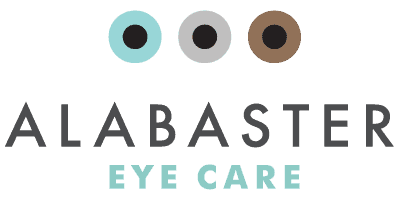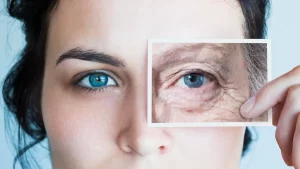Aging is a process we all go through, and it brings a lot of changes. Whether it’s having an aching back at the end of the day or no longer being able to do everything we used to be able to do, our bodies change as we grow older. This also includes our eyes.
Our vision can begin to deteriorate as we age, and older people are more at risk for eye diseases, such as age-related macular degeneration (AMD). However, just because your eyes are aging along with you, it doesn’t mean you have to experience loss of vision or blindness as you get older. With the steps below, you can support healthy aging for your eyes and keep seeing clearly!
How to Support Healthy Aging of the Eyes
The sight-saving habits below will help immensely in keeping your eyes healthy as you get older. However, you should follow these habits your whole life rather than waiting until problems with the eyes arise (but if you haven’t been following these, there’s no better time to start than right now!).
Have a Baseline Comprehensive Eye Exam
Even if you’ve gone to the eye doctor routinely throughout your life, it’s important to get baseline comprehensive eye exams starting when you turn 40. A baseline comprehensive eye exam is slightly different from a regular exam for contacts or glasses. With this exam, the pupils are dilated, which allows your ophthalmologist to see the back of the eyes. By doing this, they can discover diseases even if they are in the early stages, which means earlier treatment.
A baseline comprehensive eye exam can detect signs of:
- Cataracts, or cloudiness in the eye’s lens
- Glaucoma, which can cause a build-up of fluid and pressure in the eye
- Diabetic retinopathy, which occurs as a complication of diabetes and damages blood vessels
- Age-related macular degeneration, or degeneration that destroys the macula
Once you begin having this sort of eye exam, you should ideally continue receiving them:
- Every 2–4 years until the age of 54
- Every 1–3 years after that up until the age of 64
- Every 1–2 years after the age of 64
Quit Smoking
If you’ve heard it once, you’ve heard it a million times—now is the time to quit smoking! Smoking isn’t only bad for your lungs but also for your eyes. Smokers increase their likelihood of developing AMD or cataracts when they get older. We realize kicking the habit can be challenging, but there are resources to help if you’re ready to get your eye health back on track.
Be Aware of Your Family History
If you aren’t sure what your family’s history with eye disease is, now is the time to find out. Cataracts, glaucoma, and AMD can all be inherited, and in the case of AMD, if you have a relative with this disease, you have a 50% chance of developing it, too. With a family history of glaucoma, your chances of developing the disease increase four to nine times. So, find out whether your family tree has a history of eye disease, and be sure to let your eye doctor know!
Eat Well
How often have you heard, “You are what you eat?” If you follow a relatively healthy diet, you’re going to be in better health than someone who doesn’t, and this includes eye health. Loading up on dark leafy greens, like kale and spinach, is exceptionally good for keeping eyes healthy. Including plenty of citrus fruits and fish high in omega-3 fatty acids can also keep your eyes seeing their best!
Know Your Numbers
As you age, your blood sugar, blood pressure, and cholesterol levels can rise. Unfortunately, the higher these things are, the more at risk you are for suffering vision loss and eye disease. Keep an eye on those numbers, and talk to your doctor about how to better control them if they’re getting high!
Protect Your Peepers
Finally, one of the most important ways to keep your eyes healthy as you get older is to always protect them from the sun. Whenever you’re outdoors, wear sunglasses to shade those peepers from ultraviolet rays! Ideally, you should choose sunglasses capable of blocking 99 to 100% of UVA and UVB rays.
Final Thoughts
Your eye health may not have been something you considered when you pictured getting older, but it’s something to keep in mind. If you start early on with the healthy habits above, you should be able to keep your eyes in the best shape possible for longer. Even if you’re getting a later start on forming healthy habits, though, it isn’t too late! The best time to start is always now.
___________
By Misty Layne

